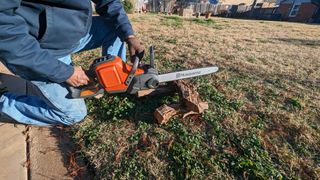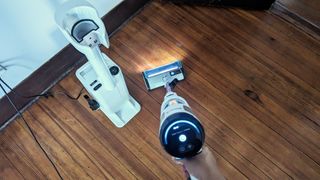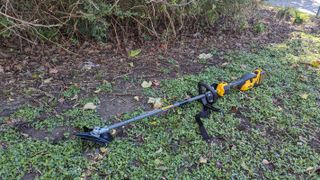
Best chainsaw deals 2024: how to bag the biggest discounts
Deals How, when and where to find the best chainsaw deals all-year round.





News The Dyson 360 Vis Nav uses 360 vision to intelligently deep clean your home, picking up more debris than others claim.

Hands-On We tried out Weber's smaller Traveler gas grill to see how it compared to the original model.

News There are three global first-time launches among the wave of new products from SharkNinja.

News The new Ninja Double Stack Air Fryer is one of the latest kitchen countertop innovations to be announced.

Buying guide Find the best juicer for you with our top options that made the cut from Cuisinart, Breville and Hamilton Beach.

BUYING GUIDE Explore the best French door refrigerators from LG, Frigidaire and more to make organizing your cool foods a dream.

BUYING GUIDE The best electric cooktops are energy-efficient, safer, and easier to clean - here are our tops picks.

Buying guide Discover the best slide-in ranges for your household, featuring both gas and electric options.

BUYING GUIDE Let the best ovens from LG, GE, and Frigidaire make dinner times that little bit simpler.

Buying Guide With the best dishwashers, you can count upon effortlessly-clean dishes every single time, as well as intense cycles which can help to eliminate grime and stains.

Buying guide Explore the best espresso machines, as tried and recommended by us, so you can get barista-quality drinks without leaving the house.

Deals How, when and where to find the best chainsaw deals all-year round.

Deals If you want to snag the best deal on a new vacuum, you should know where to look.

Deals Shop these LG Memorial Day deals to save big on your new washer, refrigerator or dishwasher from a top-rated brand.

Deals Shop the best washer dryer combo deals with our roundup of discounted appliances.

Deals The best DeWALT deals are available to buy from Amazon, Acme Tools, Home Depot, Woot and more. Shop here, and now.

Review The Halo Capsule X is an unusual stick vacuum that almost breaks the mold.

How To Buying a robotic lawn mower can be quite an investment. We've put together this guide on how to choose a robot lawn mower, complete with expert feedback, to help you find the best one for you.